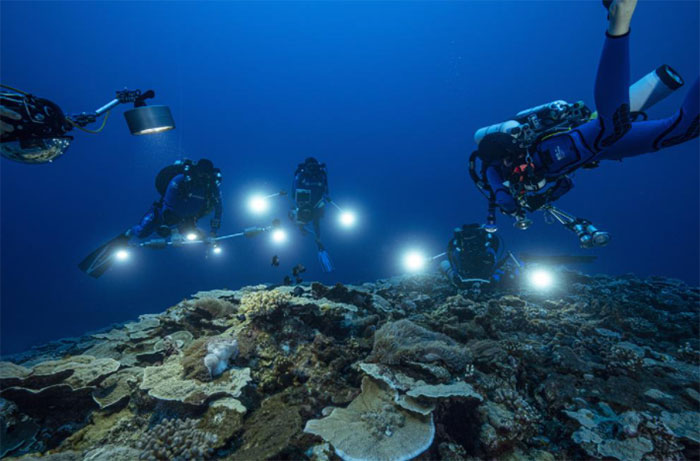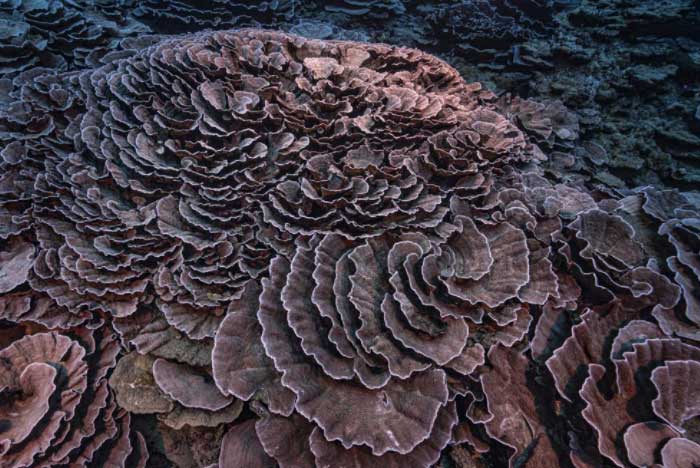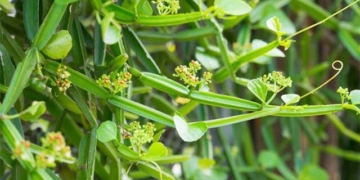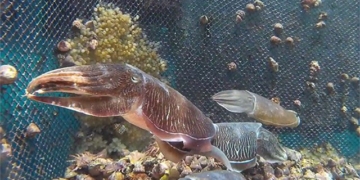Scientists have discovered a rare, pristine coral reef shaped like a rose, seemingly untouched by climate change or human activities off the coast of Tahiti in the South Pacific.
On January 19, the Associated Press reported that scientists believe this is one of the largest coral reefs found at such depths.

Research team studying coral reef off the coast of Tahiti, French Polynesia – (Photo: AP).
Several months ago, Laetitia Hedouin, a researcher at the French National Centre for Scientific Research in Moorea (French Polynesia), first encountered this pristine coral reef during a scenic diving trip with a local dive club.
“When I first got there, I thought we needed to study that reef. There was something special about it,” Hedouin stated.
What impressed Hedouin was that the coral reef appeared healthy and unaffected by the bleaching event that caused mass coral deaths in 2019.
Globally, coral reefs are significantly shrinking due to environmental pollution. Climate change has also led to mass coral die-offs worldwide, a trend that will continue if oceans keep warming.
From 2009 to 2018, 14% of the global coral population died, according to a 2020 report from the Global Coral Reef Monitoring Project.

Rose-shaped coral off the coast of Tahiti in French Polynesia – (Photo: AP)
The newly discovered coral reef stretches approximately 3 kilometers. Unlike many mapped coral reefs worldwide that are at relatively shallow depths, this reef is located deeper, between 35 to 70 meters below the sea floor.
Greater depths pose increased risks for divers. Nevertheless, the research team dedicated 200 hours of diving to photograph, measure, and sample the reef for study purposes.
Hedouin noted that the underwater volcanic eruption in Tonga, which triggered tsunamis across the Pacific, did not impact the aforementioned coral reef.
Hedouin hopes this research can help experts understand how the coral reef off the coast of Tahiti has withstood climate change and human activities, as well as the role of these deeper reefs in the ocean ecosystem.
The research team has scheduled several dives in the coming months to continue exploring this reef.


















































